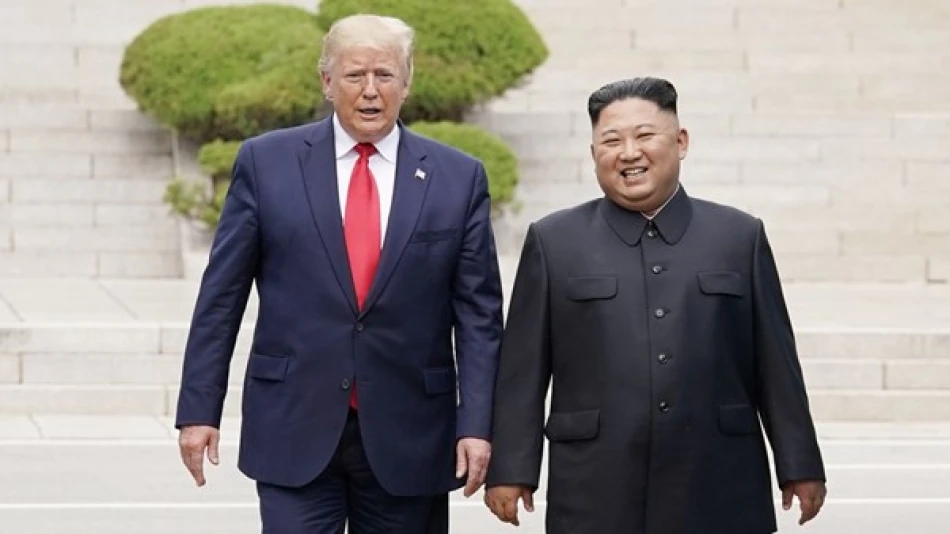
Trump Responds to Question on Potential Meeting with North Korean Leader
Trump Signals Renewed North Korea Diplomacy as Regional Tensions Mount
President Donald Trump confirmed Monday that he will meet with North Korean leader Kim Jong Un "someday," reviving hopes for direct diplomacy on the Korean Peninsula just as South Korea's new president prepares to visit Washington. The statement suggests Trump may dust off his unconventional diplomatic playbook that previously yielded three historic summits with the reclusive dictator.
A Return to Personal Diplomacy
When asked by reporters about the possibility of another meeting with Kim, Trump was characteristically confident: "I'll see him someday. We'll meet at some point." The timing is significant, coming ahead of South Korean President Lee Jae-myung's upcoming visit to Washington, where North Korea's nuclear program will likely dominate discussions.
This marks a continuation of Trump's stated openness to renewed contact with Pyongyang. The White House indicated in June that Trump would welcome communication with the North Korean leader and remains "ready to exchange messages with Kim Jong Un."
Historical Context: When Trump Met Kim
Trump's first presidency featured an unprecedented diplomatic experiment with North Korea. After trading threats and insults in 2017, the two leaders met three times between 2018 and 2019 – in Singapore, Hanoi, and at the Korean Demilitarized Zone. While these summits generated global headlines and temporarily reduced tensions, they ultimately failed to achieve meaningful denuclearization.
The Hanoi summit in February 2019 collapsed without agreement, with both sides walking away over sanctions relief and denuclearization sequencing. Since then, North Korea has continued developing its nuclear and missile capabilities, conducting numerous weapons tests throughout the Biden administration.
Strategic Implications for Regional Security
Trump's renewed interest in Kim Jong Un diplomacy comes at a critical juncture for Northeast Asian security. North Korea has strengthened ties with Russia and China while advancing its weapons programs. The country recently deployed troops to support Russia's war in Ukraine, marking its most significant military involvement abroad in decades.
For South Korea's President Lee, Trump's willingness to engage Pyongyang directly presents both opportunities and risks. While any reduction in tensions benefits Seoul, South Korean leaders have historically worried about being sidelined in US-North Korea talks that could affect their national security interests.
Market and Geopolitical Ramifications
Financial markets typically respond positively to diplomatic overtures on the Korean Peninsula, viewing reduced tensions as beneficial for regional stability and trade. South Korean assets often rally on peace prospects, while defense contractors may see mixed signals depending on whether diplomacy leads to reduced military spending or simply reshuffles strategic priorities.
The broader geopolitical calculation involves China, which remains North Korea's primary economic lifeline. Beijing has traditionally preferred diplomatic engagement over military pressure, making Trump's approach potentially more palatable to Chinese leadership than continued isolation strategies.
Whether Trump's personal chemistry with Kim can translate into substantive policy breakthroughs remains the key question. Previous summits demonstrated that good relations between leaders don't automatically resolve deep-seated security dilemmas, but they can create space for incremental progress that might otherwise prove impossible.
Most Viewed News

 Layla Al Mansoori
Layla Al Mansoori






